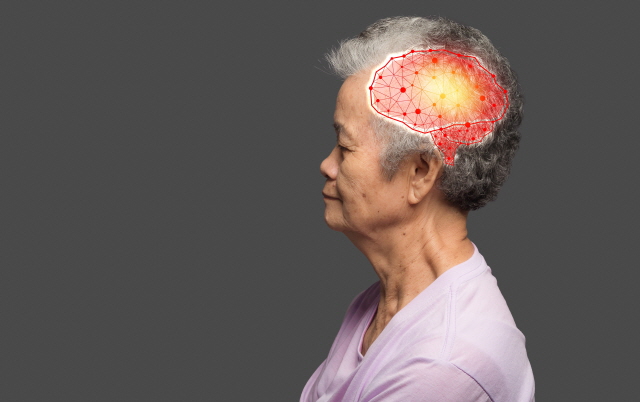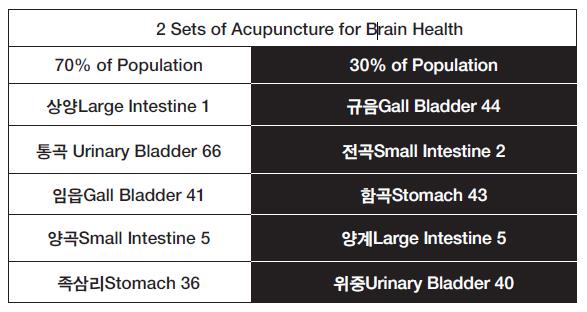
Brain Health and Acupuncture
By David Lee, L.Ac.
The key to prolonging life with a higher quality of brain function lies in disease reduction and health promotion. Longevity has become increasingly common with humans living well beyond a century. Notably, acupuncture plays a significant role in promoting longevity by diminishing disease and enhancing physiological well-being. Beyond simply alleviating pain and inflammation, acupuncture contributes to overall health and mental well-being. Studies indicate that acupuncture can restore chemical imbalances in the brain caused by various factors like disease, aging, or medications.
Acupuncture has demonstrated its ability to alleviate the effects of certain brain disorders, such as Parkinson’s disease and essential tremors. This suggests that acupuncture aids in improving communication between different regions of the brain. As a result, patients experience improved physical coordination, and report reduced brain fog and enhanced memory.
The enduring benefits of acupuncture suggest that it induces permanent and positive changes in the brain and the peripheral nervous system. Its efficacy extends beyond pain relief or neuropathy reduction, influencing improved brain function. Patients exhibit smoother mobility, enhanced dexterity, quicker verbal responses, and improved conversational ability.
Moreover, some elderly individuals experience accelerated mental decline following severe illnesses like heart attacks, where the stress on the body compromises brain function. Acupuncture has shown promise in aiding recovery from trauma and prolonged illnesses that cause nerve deterioration.
Additionally, chemical imbalances triggered by external substances can be rectified through acupuncture. This includes withdrawal symptoms from antidepressants, opiates, or illicit drugs. Many have successfully and swiftly recovered, indicating restored normal brain function.
Given its holistic nature, acupuncture aimed at treating pain and inflammation contributes significantly to the health of brain cells. Any bodily dysfunction communicated through the peripheral nervous system influences the brain’s adaptations. Contrarily, improved bodily function signifies enhanced neuronal connections, highlighting the interconnectedness between the body and brain.
An optimal acupuncture point functions as a significant node within the body’s physiological network, surpassing mere treatment for a specific issue. It contributes to the holistic enhancement of bodily functions, positively impacting brain function.
In my clinic and among my peers, Bisoma acupuncture stands as a primary treatment method. The remarkable improvements witnessed by solely utilizing the Horary Transporting points on the hands and feet are truly profound.
Typically, approximately 70% of individuals exhibit positive responses to the following set of points: LI1 (metal point on a metal meridian), UB66 (water point on a water meridian), GB41 (wood point on a wood meridian), SI5 (fire point on a fire meridian), and ST36 (earth point on an earth meridian). These points, correlated with the five elements, often yield significant therapeutic outcomes.
However, in cases where these primary points may not yield the desired effects, an alternative set of Horary points, present in about 30% of the Population, comes into consideration. This secondary pattern comprises GB44 (wood point on a wood meridian), SI2 (fire point on a fire meridian), ST43 (earth point on an earth meridian), LI5 (metal point on a metal meridian), and UB40 (water point on a water meridian). This alternate pattern is explored to achieve the desired therapeutic results.
The human brain possesses remarkable inherent capabilities for self-reconstitution. Unlike medication, acupuncture doesn’t exert control but acts as a facilitator. Each acupuncture point that alleviates pain not only targets specific issues but also bolsters the body’s innate capacity to identify and rectify underlying problems. This aids the body in maintaining chemical balance and homeostasis in its processes.
For individuals aged 40 and above, especially the elderly, regular acupuncture sessions should be considered a tonic for health maintenance. Initial treatments, ideally administered two to three times a week over several weeks, can yield significant improvements in both cognitive and bodily functions. Subsequently, a reduced frequency of sessions, perhaps every two weeks, is advisable to sustain the achieved improvements. This maintenance phase becomes crucial once the initial treatments have provided substantial relief and enhancement.
Acupuncture stands as a natural gift accessible to everyone, offering an avenue toward better health and well-being without reliance on artificial substances or invasive procedures.

































